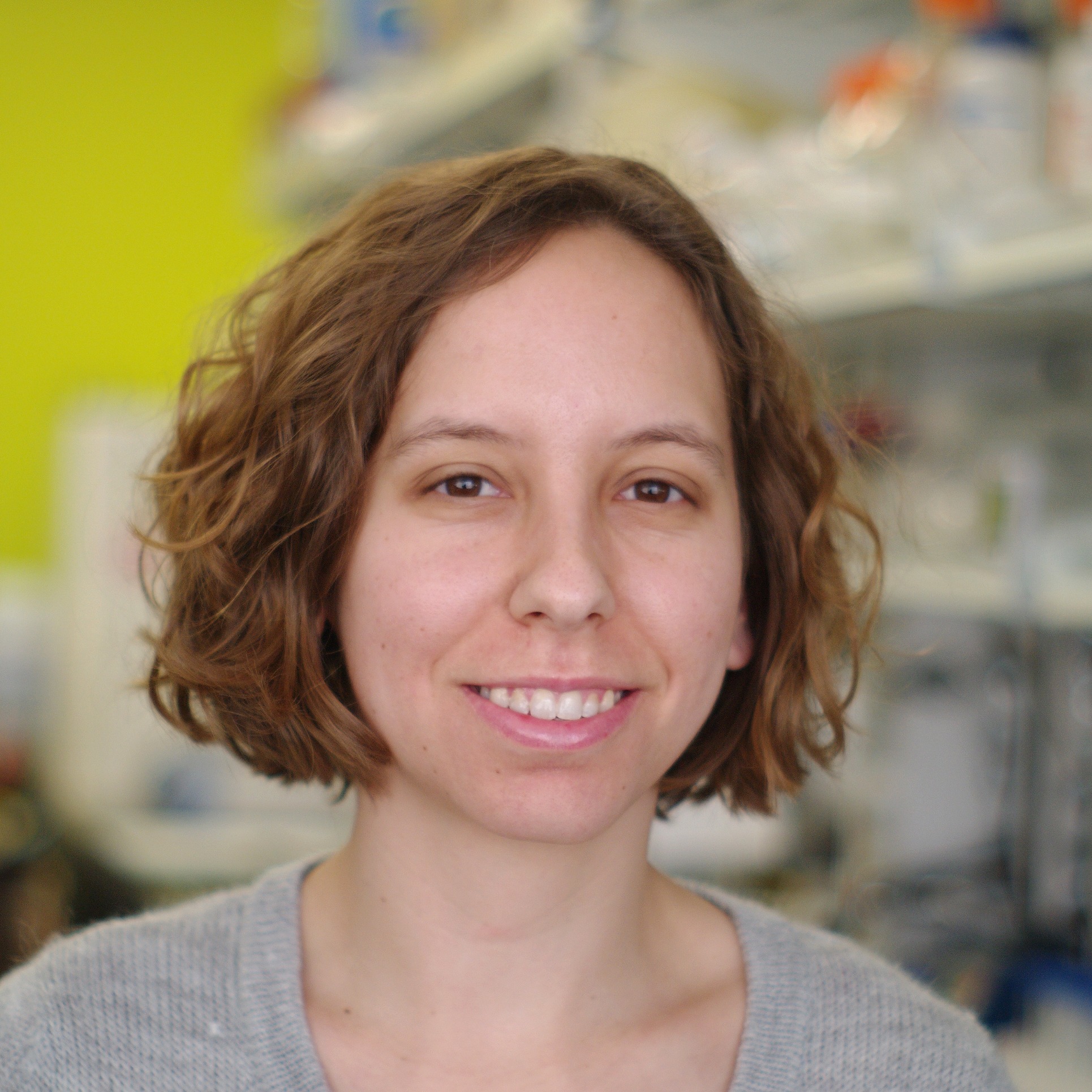DIAN Observational Study Leadership
Principal investigator and program director
Randall J. Bateman, MD

Charles F. and Joanne Knight Distinguished Professor of Neurology
Washington University School of Medicine in St. Louis
600 S. Euclid Ave., Campus Box 8111
St. Louis, MO 63110
Email: batemanr@wustl.edu
Research interests
Phone: 314-286-1674
Fax: 314-747-7060
Dr. Randall Bateman is the Charles F. and Joanne Knight Distinguished Professor of Neurology, Director of the Dominantly Inherited Alzheimer Network (DIAN, http://dian.wustl.edu ), and Director of the DIAN Trials Unit (DIAN-TU). Dr. Bateman’s research focuses on the pathophysiology and development of improved diagnostics and treatments of Alzheimer’s disease. Dr. Bateman treats patients with dementia at the Memory Diagnostic Center of Washington University.
Dr. Bateman launched the DIAN-TU Pharma Consortium in 2011 with ten major pharmaceutical companies joining to support and assist in the development of trials for autosomal dominant Alzheimer’s disease. Dr. Bateman directs the DIAN-TU, which launched prevention trials in families with dominantly inherited Alzheimer’s disease in 2012. The DIAN-TU trial is an advanced worldwide adaptive trial platform that tests therapeutics targeting the pathophysiology of Alzheimer’s disease with the goal to slow, stop or reverse Alzheimer’s disease. The DIAN-TU has launched three Phase 2/3 drug arms with a range of amyloid-beta targets and has now launched tau-directed drugs in combination with amyloid drugs and a primary prevention trial to prevent amyloid plaques from forming.
Dr. Bateman’s lab accomplishments include pioneering the central nervous system Stable Isotope Labeling Kinetics (SILK) measurements in humans, which utilizes sub-atomic labeling with stable isotopes to track in vivo protein production and clearance, leading to understanding of the time and kinetic basis of proteins leading to neurodegeneration. His lab has made major contributions to the understanding of the structures and functions of neurodegenerative proteins in pathophysiology of Alzheimer’s disease and other neurodegenerative diseases. His lab has furthered insights of human circadian patterns of amyloid-beta and soluble amyloid precursor protein, and human in vivo control of the alpha-secretase, beta-secretase, and gamma-secretase processing of amyloid-beta. Utilizing SILK techniques, his lab also demonstrated that tau production is increased in Alzheimer’s disease, and that novel forms of tau in the cerebrospinal fluid and blood can diagnose and stage the disease.
His lab discovered the first high-precision blood test for Alzheimer’s disease amyloid plaques in 2017, which is now available to doctors and patients as the first blood test to help diagnose Alzheimer’s disease. His lab has generated the most accurate blood tests for Alzheimer’s disease in head-to-head comparisons, rivaling that of PET and CSF tests, promising to provide accurate diagnosis and the potential for treatment of millions of patients who otherwise would not have access to accurate diagnosis.
Dr. Bateman is a productive innovator with 47 active or pending patents, and co-founder of C2N Diagnostics, which now provides the first high-accuracy blood test for Alzheimer’s disease based on Dr. Bateman’s discoveries at Washington University. Dr. Bateman has established multiple research consortiums, including the DIAN-TU Pharma Consortium, Tau SILK Consortium and the NfL Consortium, which are joint academic and industry collaborations to develop biomarkers useful for tracking and staging disease. Dr. Bateman has established the SILQ Center to further advances in neurodegeneration and aging by utilizing precise measures of neurodegenerative proteins and their production, transport, and clearance in health and disease.
Dr. Bateman has received a number of awards including the Beeson Award for Aging Research, Alzheimer’s Association Zenith Fellow’s Award, Scientific American top innovator, the Glenn Award for Aging Research, the Washington University Chancellor’s Award for Innovation and Entrepreneurship, the MetLife Foundation Award for Medical Research, and the Potamkin Prize. He is a member of the American Neurological Association, the American Society for Clinical Investigation Council, and the American Academy of Neurology. He is an elected member of the National Academy of Medicine and the National Academy of Inventors.
Executive director
Alisha Daniels, MD, MHA
Washington University School of Medicine in St. Louis
600 S. Euclid Ave., Campus Box 8111
St. Louis, MO 63110
Email: alisha.daniels@wustl.edu
Phone: 314-273-9057
Fax: 314-747-7060
Dr. Daniels has over 14 years of experience in research coordination, management, and administration. Dr. Daniels is certified in clinical research through SoCRA and clinical research coordination and project management through ACRP, where she also sits as a Global Exam Committee Member for ACRP’s CCRC test form.
Investigators
Eric McDade, DO
Associate Director and Clinical Core Leader
Professor of Neurology
Washington University School of Medicine in St. Louis
600 S. Euclid Ave., Campus Box 8111
St. Louis, 63110
Email: ericmcdade@wustl.edu
Phone: 314-286-1967
Fax: 314-747-7060
Dr. McDade is a specialist in dementia syndromes. He serves as the Associate Director of the DIAN Clinical Core, the Associate Director of the DIAN Trials Unit and the Principle Investigator of the DIAN Expanded Registry. Dr. McDade’s research interest is in understanding the early markers of disease progression in Alzheimer disease and applying this to prevention trials in DIAN.
David Holtzman, MD
Associate Director, Alzheimer’s Disease Research Center
Andrew B. and Gretchen P. Jones Professor of Neurology and Molecular Biology & Pharmacology
Washington University School of Medicine in St. Louis
660 S. Euclid Ave., Campus Box 8118
St. Louis, MO 63110
Email: holtzman@wustl.edu
Phone: 314-747-0644
Fax: 314-362-2693
Dr. Holtzman is recognized internationally as a leader in Alzheimer’s disease biomarker research. He is the chair of the Department of Neurology at Washington University School of Medicine. He has received both the MetLife and Potamkin awards in recognition of his research.
Celeste Karch, PhD
Associate Director and Scientific Director
Professor, Department of Psychiatry
425 S. Euclid Ave, Campus Box 8134
St Louis, MO 63110
Email: karchc@wustl.edu
Phone: 314-747-3161
Fax: 314-362-2244
Dr. Karch’s research focuses on using genomic and proteomic approaches in stem cell models to understand the molecular mechanisms that underlie Alzheimer disease. Dr. Karch serves as the DIAN Resource Director and an Associate Director of DIAN.
John C. Morris, MD
Associate Director
The Harvey A. and Dorismae Hacker Friedman Distinguished Professor of
Neurology and Professor of Pathology and Immunology, Physical Therapy, and Occupational Therapy
Washington University School of Medicine in St. Louis
4488 Forest Park Ave., Suite 130
St. Louis, MO 63108
Email: morrisj@abraxas.wustl.edu
Phone: 314-286-2881
Fax: 314-286-2763
Dr. Morris directs the Washington University Knight Alzheimer’s Disease Research Center and its two program projects, Healthy Aging and Senile Dementia and the Adult Children Study. Dr. Morris has approximately 500 peer-reviewed publications and a current h-index of 95. Dr. Morris has received both the MetLife and Potamkin awards in recognition of his research. He also received the Carl and Gerty Cori Faculty Achievement Award and the Second Century Award from Washington University, and the Lifetime Achievement Award from the Alzheimer’s Association.
Jorge Llibre-Guerra, MD
Assistant Director
Assistant Professor of Neurology
Washington University School of Medicine in St. Louis
4488 Forest Park Ave., Suite 301
St. Louis, MO 63108
Email: jllibre-guerra@wustl.edu
Phone: 314-747-7066
Fax: 314-747-7060
Dr. Llibre’s research focuses on the epidemiology and genetic pathways implicated in neurodegeneration, early markers of dementia, dementia prevention, and clinical trials in dementia.
Tammie Benzinger, MD, PhD
Imaging Core Co-Leader
Washington University School of Medicine in St. Louis
660 S. Euclid Ave., Campus Box 8131
St. Louis, MO 63110
Email: benzingert@wustl.edu
Phone: 314-362-5950
Fax: 314-362-4886
Dr. Benzinger is an expert in the use of imaging to look for biochemical and structural brain changes.
Carlos Cruchaga, PhD
Genetics Core Co-Leader
Associate Professor, Department of Psychiatry
Washington University School of Medicine in St. Louis
425 S. Euclid Ave., Campus Box 8134
St. Louis, MO 63110
Email: ccruchaga@wustl.edu
Phone: 314-286-0546
Fax: 314-362-2244
Dr. Cruchaga’s interests are focused on the identification and characterization of genetic variants implicated in Alzheimer’s disease. The identification of such factors will help lead to a better understanding of the pathobiology of the disease and to the identification of new therapeutic targets.
Brian Gordon, PhD
Imaging Core Co-Leader
Assistant Professor of Radiology
Washington University School of Medicine in St. Louis
660 S. Euclid Ave.
St. Louis, MO 63110
Email: bagordon@wustl.edu
Phone: 314-747-7354
Brian A. Gordon, PhD, is an assistant professor of radiology and a principal investigator in the Neuroimaging Labs Research Center, based in Mallinckrodt Institute of Radiology (MIR) at Washington University School of Medicine in St. Louis, as well as an assistant professor of psychological & brain sciences and biomedical engineering. He is also a faculty member in the Neuroscience PhD program and the interdisciplinary Data Science PhD program. Trained as a cognitive neuroscientist, Gordon’s research focuses on utilizing advanced neuroimaging techniques such as PET and MRI to understand the complex biology of healthy aging and neurodegenerative disorders. He takes a systems level approach and is interested in how a myriad of factors including genetics, environmental exposures and social influences can act to promote or hinder successful aging. Gordon completed his doctorate at the University of Illinois, where he utilized MRI, optical imaging and electrophysiological measures (EEG/ERPs) to study aging. After completing a fellowship at Washington University, he transitioned to faculty and obtained an NIH K01 award, which supports early career researchers. He currently leads a project to study tau pathology in autosomal dominant Alzheimer pathology (U19AG032438), is a site-PI on a collaborative study to understand tau pathology (R01AG075336), and is a member of the Knight ADRC imaging core, which supports multiple major grants studying sporadic Alzheimer’s disease. He has also received funding from the American Society for Neuroradiology, the Alzheimer’s Association, the Michael J. Fox Foundation and the Donor Cures Foundation
Laura Ibanez, PhD, MS
Biomarker Core Leader
Assistant Professor of Psychiatry and Neurology
Washington University School of Medicine in St. Louis
4444 Forest Park Ave.
St. Louis, MO 63108
Email: ibanezl@wustl.edu
Phone: 314-273-3641
Dr. Ibanez’s research aims to answer the following question: How can we generate a good biomarker? Aside from high sensitivity and specificity, a good biomarker must be cost-effective so it can be accessible at a population level and be easily repeatable; sensitive to acute or pre-clinical phases of the disease to allow greater therapeutic windows and improve patient management; minimally or non-invasive to minimize patient discomfort and agnostic to ethnic backgrounds. Additionally, a good biomarker should be able to monitor disease progression and response to potential disease-modifying therapies. Her research, based on measuring RNA species in plasma, is designed to address all these issues. RNA is highly dynamic, which is potentially useful for monitoring disease progression and the response to treatment. RNA can be measured by real-time PCR, a cost-effective technique routinely used in clinical laboratories. Plasma is minimally invasive, easily accessible, widely used, and stored in most biobanks. Thus, her research focuses on plasma RNA species quantification and the application of advanced bioinformatics techniques to develop novel biomarkers and to identify novel mechanisms involved in neurodegeneration and acute ischemic stroke. Nothing in her lab would be possible without the support of the team and the study participants.
Alison Goate, DPhil
Genetics Core Co-Leader
Willard T.C. Johnson Research Professor of Neurogenetics
Director, Ronald M. Loeb Center for Alzheimer’s disease
Dept. of Neuroscience, B1065
Icahn School of Medicine at Mount Sinai
1425 Madison Ave.
New York, NY 10029
E-mail: alison.goate@mssm.edu
Phone: 212-659-5672
Dr. Goate reported the first causative mutation for autosomal dominant Alzheimer’s disease. Her projects involve high-throughout genotyping on several platforms. Dr. Goate has received both the MetLife and the Potamkin awards in recognition of her research.
Jason Hassenstab, PhD
Cognition Core Leader
Associate Professor, Departments of Neurology and Psychological and Brain Sciences
Director, Cognitive Technology Research Laboratory (CTRLab)
Cognition Core Director for DIAN and DIAN-TU
Washington University School of Medicine in St. Louis
4488 Forest Park Ave, Suite 372
St. Louis, MO 63130
Email: hassenstabj@wustl.edu
Phone: 314-747-4032
Dr. Hassenstab’s research focuses on impact of normal aging and Alzheimer’s disease (AD) on cognition. His laboratory, the Cognitive Technology Research Lab (CTRLab) uses measurement burst designs, based on principles from ecological momentary assessment, to measure cognition rapidly and frequently on smartphones in normal and clinical populations. He also develops web-based cognitive assessments designed to increase the sensitivity of cognitive measures to the very earliest stages of AD. Dr. Hassenstab is the director of the Cognition Cores for the Dominantly Inherited Alzheimer Network (DIAN) and the Dominantly Inherited Alzheimer Network-Trials Unit (DIAN-TU).
Richard J. Perrin, MD, PhD
Neuropathology Core Leader
Associate Professor, Department of Pathology & Immunology
Washington University School of Medicine in St. Louis
660 S. Euclid Ave., Campus Box 8118
St. Louis, MO 63110
Email: rperrin@wustl.edu
Phone: 314-362-7426
Dr. Perrin directs the Translational Human Neurodegenerative Disease Research (THuNDR) Laboratory, which serves as the Neuropathology Core of the Dominantly Inherited Alzheimer Network (DIAN), the Dominantly Inherited Alzheimer Network – Trials Unit (DIAN-TU), the Charles F. and Joann Knight Alzheimer Disease Research Center (Knight ADRC), the Alzheimer Disease Neuroimaging Initiative (ADNI), and the Washington University Movement Disorders Center. As Leader of these Neuropathology Cores, he also supports many collaborative translational research projects with investigators at Washington University and elsewhere, with a focus on understanding and developing biomarkers and treatments for neurodegenerative diseases.
Chengjie Xiong, PhD
Biostatistics Core Leader
Research Associate Professor of Biostatistics
Washington University School of Medicine in St. Louis
660 S. Euclid Ave., Campus Box 8067
St. Louis, MO 63110
Email: chengjie@wubios.wustl.edu
Phone: 314-362-3635
Fax: 314-362-2693
Dr. Xiong has served as an associate editor of the Journal of Alzheimer’s Disease and the associate editor of Biostatistics for Alzheimer’s Disease and Associated Disorders. Dr. Xiong’s research interests include statistical design of experiments, linear and nonlinear mixed models, longitudinal data analysis, survival analysis and reliability, categorical data analysis, order restricted statistical inferences, and their applications in medicine, biology, education and engineering.


